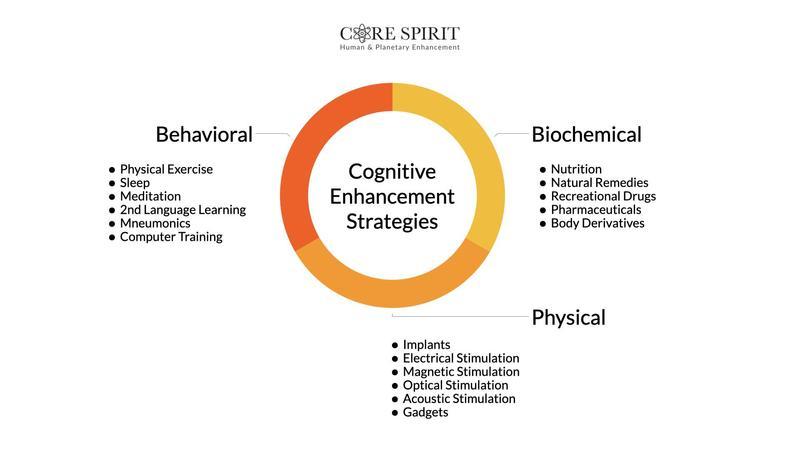Hacking the Brain: Dimensions of Cognitive Enhancement (Research)
Hacking the Brain: Dimensions of Cognitive Enhancement (Research)
In our rapidly transforming society, demand for excellent cognitive abilities is growing. A recent research, published in ACS Chemical Neuroscience Journal, is devoted to different dimensions of cognitive enhancement and reviews examples of various cognitive enhancers.
Information society requires to develop cognitive skills by slow, effortful and expensive learning and training. As the world changes faster and faster, these skills often become obsolete and needless. On both individual and societal levels, it has become very important to improve the ways to acquire cognitive skills and constantly develop them. Thus, more and more researchers, companies and individuals are starting to explore the strategies to enhance the brain.
Cognitive enhancement is known as interventions made by humans with an aim to improve mental functioning beyond what is needed to keep or regain good health. It is more widespread to think of pharmacological ways of enhancement in the modern bioethical discussion but academics from leading European universities included nonpharmacological means in their research as well. It was decided to categorize cognitive enhancement strategies as either biochemical, physical, or behavioral interventions.
Biochemical Strategies
Biochemical interventions are most popular in the public debate these days. Interestingly, these are not just ‘smart drugs’. Even such ordinary substances like oxygen are known to boost memory processes.
Most ancient biochemical means to boost our brain function are particular nutritional components. Most popular are glucose and caffeine. On the other hand, the absence of food is also known to boost cognitive functions – fasting and restricting calorie intake are known to improve memory among the elderly.
Natural remedies are also popular brain boosters: herbs like salvia, ginseng and ginkgo biloba are known to enhance cognitive abilities.
Recreational drugs that impair many cognitive functions and actually enhance other processes. For example, nicotine improves attention and memory while alcohol boosts creative processes.
Pharmaceuticals like amphetamine, methylphenidate, or modafinil, or antidementia drugs such as acetylcholinesterase inhibitors and memantine are in the center of public debate regarding cognitive enhancement.
Some of the latest biochemical interventions are genetic modifications that have already shown to augment learning and memory processes in animals. However, this mode of enhancement is still subject to a great debate regarding its ethics.
Physical Strategies
Most physical strategies for cognitive enhancement are brain stimulation technologies: deep brain stimulation, transcranial direct current stimulation, transcranial alternating current stimulation, transcranial random noise stimulation, transcranial pulsed current stimulation, transcutaneous vagus nerve stimulation and median nerve stimulation. While these methods are still being rigorously studied, they already gained popularity.
Optical stimulation with lasers and different types of acoustic stimulation like transcranial focused ultrasound, binaural beats, sleep EEG slow oscillations and others have also shown some potential for cognitive enhancement.
Among some indirect strategies there are whole body vibrations, stochastic resonance motor control improvement and neurofeedback. These methods improve memory and visuospatial skills.
In the tech world, there are of course hundreds of devices being developed for cognitive enhancement. Wearable electronic memory aids, augmented reality gadgets, extending bodily implants, neural implants, brain-computer interfaces can improve multiple aspects of cognitive performance.
Behavioral Strategies
Behavioral strategies are probably not what comes to mind when thinking of cognitive enhancement, but they actually have the longest history. Daily activities like sleep, physical exercise, musical training, dancing, and learning a second language improve cognitive abilities.
Besides these natural and cultural activities, there are other behavioral strategies. Mnemonic techniques improve learning and memory, meditation is good for attention and mindfulness. Video games and computer trainings can also improve particular cognitive skills.
References
- https://pubs.acs.org
- Juengst E. T. (1998) What does enhancement mean? In Enhancing Human Traits: Ethical and Social Implications (Parens E., Ed.), pp 29–47, Georgetown University Press.
- ACS Chem. Neurosci. 2019, 10, 3, 1137–1148 Publication Date:December 14, 2018 https://doi.org/10.1021/acschemneuro.8b00571
Be the first to post a message!
